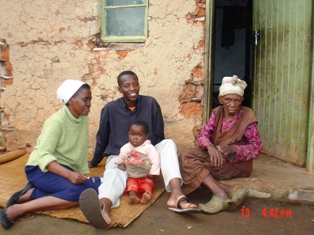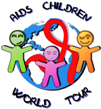Not everyone is
eligible to become a community based peer educator; TASC uses the following criteria as a
guide for enrolling peer educators:
 - It must be someone who is a permanent resident of
that community (who has been there for at least 5 yrs)
- It must be someone who is a permanent resident of
that community (who has been there for at least 5 yrs)
- The person must be passionate about the work.
- The person must be literate, that is he/she must
be able to read and write. It must be a well behaved person
in the eyes of the community
- It must be someone who does not have a negative attitude
towards HIV positive people. The person must
be chosen by the community or volunteer to be a peer educator.
In most
instances some of the TASC trained peer educators are also rural health
motivators and some are living with HIV or
have a family member who is HIV positive which is where the passion for the
work sometimes come from. However,
due to the intensity of the need for carers in the rural areas some people
assist trained peer educators (with
their work) such that some people function as peer educators without having
undergone a formal training.
The role of
peer educators include among others: provide HIV education to members of the
community, distribution of
male and female condoms, doing home visits for clients who require palliative
care. During these visits peer
educators provide education on HIV, support which may be psychosocial or
emotional, supply home based care
materials supplied by TASC such as disposable nappies, gloves, disinfectants
and so on. They further
demonstrate how home based care supplies work such as how to use gloves
properly, how to disinfect and how to
bathe a client. For clients who are critically ill, peer educators help out
with household chores such as washing,
cleaning and cooking if there is food to be cooked for the client.
CBPEs volunteer : testimony
My name is
Theresa Dlamini, I am a Community Based Peer Educator (CBPE) for Nkamanzi in
the Manzini region; I was
diagnosed as HIV positive in 2005.
What motivated
me to become a CBPE was that my husband died in 2000, I thought nothing of it
even though he died after a
very long and dilapidating illness; I just thought it was because of his
diabetes. My child then got very sick, Fikile
Mdluli, who was a TASC trained CBPE would come over to my place, just to see
how things were going and she
advised me to get me and my son tested. We did eventually get tested in 2005
through TASC mobile outreach
and we were both found to be HIV Positive. I had difficulty disclosing to my
family at first so I disclosed to
the CBPE and then through counseling sessions with her and TASC counselors, I
gained courage to disclose to my
family and now I live positively and openly with my status. TASC also helped me
immensely because through
them I was able to get an education fund for my son ho is now 11 years and in
grade 2, he was sick for a very
long time and did not start school in time because of that, but now he is
healthy and happy child and I'm hopeful
that he will do well.
Before I was
trained as a CBPE, I was passionate about HIV issues and I taught in the
community about those issues, but
after I got tested and lived through the phases of fear, hopelessness and
acceptance I decided to formally train
as a CBPE to be better equipped to help people in my community who are in the
position I was in. Due to my
experience people in the community open up easily to me and the help that I
provide through assistance from
TASC, and the fact that my work is appreciated also help me because as I talk
to people I also help myself in
the process and my stress levels are reduced because I'm doing something I'm
passionate about. I started ART in
December 2007, and the fact that I'm healthy, even though on ART gives people
hope that they too can still live
with HIV.
TASC training programm
Overview
TASC offers
CIHTC/VCT and front desk counselor training in partnership with the Ministry of
health and social welfare.
The Client Initiated HIV Testing and counseling short course provides training
for pre and post test
counseling only plus training on rapid testing for the medically oriented
counselors.
The training is
divided into two (2) parts:
- Part 1- Pre And
Post HIV test counseling, theory and hands on practical training
- Part 2-
Training on HIV rapid testing, theory and hands on practical training
Other trainings
provided by TASC are; Systemic counselor training and peer educators training
Community based and work
based peer counselors training. The overarching objective of training is; to
build capacity among
all VCT/ HTC service providers by sharing skills, strategies, knowledge, and techniques
hence improved quality service provision at VCT/HTC sites and health care
facilities providing HTC
in Swaziland.
2007 was a
rather productive year though we were not able to conduct three HTC trainings
as was intended. We
were able to run a Systemic counselor training which I would proudly say it was
quite an experience
since it was conducted to Church members from different denominations, We were also able to
conduct training on Community based peer educators on ART literacy to three communities.
However, due to the busy schedule though we were not able to conduct monitoring and evaluation
to trained counselors.
Educator's training
CBPEs perform
remarkable work in communities in the absence of TASC counselors and despite
some communities
having no peer educators, CBPE's continued their excellent work. In 2007 an
adult peer educators'
training was conducted in the community of Nyatsini in the Shiselweni region. A
total of 10 participants
attended the training; 9 of them were female and 1 was male.
During this
training topics covered
included the following: Basic facts on HIV, Sexual prevention (condom education
and demo), Positive
living, PMTCT ,Support and Referrals, Opportunistic infections, Nutrition and
HIV, Role of peer educators, Key
hole gardens, Project formulation and management, Legal issues, Gender and HIV,
Home visits, Child
grief and bereavement counseling , and Care of the carer.
During this
training TASC introduced the community to the concept of “keyhole” gardening
and further capacitated the
community with a “keyhole” garden which was planted in the chief's kraal so as
to benefit the local
orphaned and vulnerable children who have since started harvesting the garden. “Keyhole” gardens act as
an organic recycling tank, using food and garden waste as fuel to grow
vegetables. Keyhole gardens are
good because:
- They hold in good soil
- Recycle waste water (they are maintained using
grey water, i.e water used for dish washing and or bathing)
- They can be grown on a rock
- They are like a giant compost heap which helps
retain moisture
The keyhole
garden is ideal for elderly or sick individuals who often depend on it as their
primary source of survival;
because the working height of the garden is at waist level, people don't need
to bend to cultivate it, and it only
takes a small amount of water to maintain it.
Peer educators ART literacy training
TASC further
conducted ART literacy training in three communities namely Ludzeludze, Godloza
and Naytsini. The
trainees were community based health care workers and people who are in
influential positions in
these communities, below are the details:
Who were Trained
These trainings
were conducted by TASC VCT/HCT counselors. Trainees were selected based on the important roles
they play in the communities as far as health care is concerned; they included
Traditional healers, Rural
Health Motivators, Community Based Peer Educators, People Living With
HIV(PLWHA), Traditional
Birth Attendants, Traditional leaders, Youth representatives, Support group
members, OVC carers,
Pastors, Preschool teachers, National Care Points workers and members of income
generating projects.
Rationale for Participants
The people of
Swaziland are largely from the Christian community and thus they often seek
guidance from their church
leader hence it was essential that they also have the right information in as far
as HIV and ART literacy is
concerned. Furthermore, Swazis are firm believers in traditional medicine hence
they also seek the services of
traditional healers. Therefore, all of these groups of people who have the
platform to nfluence
people's lives were invited to this training so that the information they pass
to the general populace is information
that is factual and free of bias.
Topics covered
Topics covered
during these trainings included but not limited to the following:
- Understanding
the HIV/AIDS Situation in Swaziland
- Understanding
ART and ARVs
- Side Effects of
ARVs
- How to Take
ARVs
- Counselor Self
care
- Community Support for ART
 - It must be someone who is a permanent resident of
that community (who has been there for
- It must be someone who is a permanent resident of
that community (who has been there for